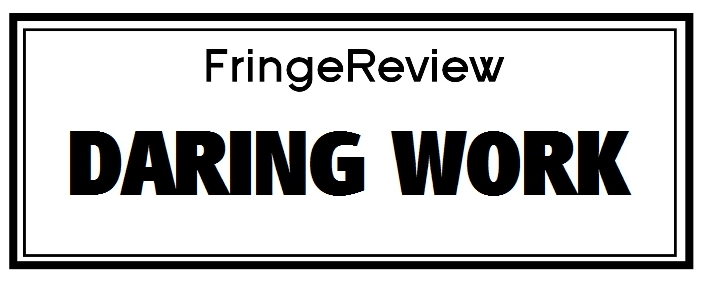Genre: Classical and Shakespeare

Review: The Lady From the Sea
A groundbreaking production. Even outside its unique terms it’s outstanding.

Review: The Merry Wives of Windsor
Sparkling, a sassy, sexy, sure-footed revival. On its own terms, could it really be bettered?

Review: Romeo and Juliet
This Romeo and Juliet has all the pace and heart any production, modern-dress or period, demands. Karen Fishwick’s radiant Juliet is the soul that imprints itself on it.

Review: Antony and Cleopatra
Supremely worth it to see a pair so famous weighing equal in their own balance, perhaps for the first time.

Review: The Little French Lawyer
Make friends with this troubling, deeply fascinating, vitally sour play.

Review: Measure for Measure
The most thoughtful and thought-provoking recreation of a Shakespeare play this year.

Review: Antony and Cleopatra
Supremely worth it to see these characters weighing equal in their own balance, perhaps for the first time.

Review: The Wits
Exhilarating and fresh, this comedy shows just how singular Davenant is, deserving full-scale revival. You’d go far to find as spirited and sure-footed a cast as this.

Review: The Merry Wives of Seoul
Refreshing, engaging take on Shakespeare’s The Merry Wives of Windsor.

Review: Romeo and Juliet
This Romeo and Juliet has all the pace and heart any production, modern-dress or period, demands. Karen Fishwick’s radiant Juliet is the soul that imprints itself on it.

Review: Believe As You List
A work rich in a few characters and poignant recognitions touching some of Massinger’s greatest. It’s the larky stoic Berecinthius though, who adds a dimension to the Caroline stage.

Review: Hamlet
In Michelle Terry’s quicksilver, quick-quipping Hamlet, much has been proved, from interpretive to gender fluidity in tragic action, that sets a privilege on being in at a beginning.

Review: The Merchant of Venice
Exceptional in many things, it’s almost a classic production and definitely worth a detour for.

Review: As You Like It
A ripping discovery, a spontaneity and transparent skin to the process makes this thrilling. An As You Like It for the moment, certainly. But a moment of change.

Review: The Winter’s Tale
If Sicilia and its dense expressive syntax could rise elsewhere, this might be altogether remarkable. As it is, enjoy its slow burn.

Review: The Comedy of Errors
This is a light-footed, thump-fisted, limp-wristed and eye-poppingly uproarious production.

Review: Sir Thomas More
This the second RND this year easily maintains the bar set so high by Eastward Ho! It’s fleet, superbly characterised in major parts but inevitably John Hopkins takes the palm for centring a superbly-realized portrayal.

Review: The Two Noble Kinsmen
We’re looking at a bright Book of Hours. Barrie Rutter’s done it profound service, adding a warmth and agency that opens up this pageant. This is hopefully just the first of many such he’ll bring to the Globe.

Review: The String Quartet’s Guide to Sex and Anxiety
A melange of music, spoken word and performance, musing on mental health.

Review: The Tempest
A superb, fleet outdoor Tempest. What it has to lack in quiet subtlety, it more than makes up in fleet humour with dispatch, keen wit, warmth, and truth.

Review: She Wolf
So what did Harvey Weinstein and the fifteenth century European ruling classes have in common? Exactly. A lot. English has achieved a phenomenal amount. She co-ordinates everything as she directs and manages her own minimal props.

Review: Eastward Ho!
This is one of the most exuberant and superbly orchestrated Read Not Deads I’ve seen.

Review: Macbeth
There’s a visceral intent and bravery, a willingness to tear though every received nostrum, some wild use of the revolve with an admittedly frantic cast trying to catch a magic roundabout, that suggests something magnificent could be made of it all. The rationale’s an urgent one: in a post-Trump post-Brexit post-climate-refugee state we could even be looking at this world soon.

Review: The Way of the World
A triumphant revival. What’s striking isn’t just the clockwork plotting but the amplitude, even insouciant luxury Congreve allows his characters to unfold in. It comes together in this rich, endlessly self-fascinated masterpiece from a master of self-effacement.

Review: The Country Wife
A dazzling revival. If you don’t know the finale, with its superb resolution, this 1920s-style production is a memorable way in, with its clarity, its comedy and its last dangerous kiss. Stunning. Do see it.

Review: Three Sisters
Poignantly well balanced exploration of the themes of a Chekhovian classic by a disabled company perfectly able to produce quality theatre

Review: Julius Caesar
Together with several definitive and newly-founded interpretations, it’s Hytner’s lithe political thriller that emerges by contrast as a physical assault on the senses. From out of the smoke and flashes of this outstanding production, there’s jumpings-on and off as participants run up from all sides and even jostle people out of the way.

Review: The Woman in the Moon
This superb production has shifted our sense of Lyly’s pre-eminence still further. Lyly hugely influenced Shakespeare like no other writer. Lyly remains the Globe’s Read Not Dead greatest rediscovery, and this production underscores that more fully and emphatically than even before, in unexpectedly to this bold, necessary reading.

Review: Electra
As a gifted exploration of Electra’s themes and a transposition of them to 21st century values, this is as exhaustive, detailed and convincing as you’d wish.

Review: Medea Electronica
Like the recent Suppliants, in a very different way, Medea Electronica asks just what we mean by Greek tragedy, what our conceptions of drama without music are. An essential experience.

Review: All’s Well That Ends Well
This is an All’s Well to believe in, and plucks, just this once, a happiness Helena so richly deserves with a husband who equally doesn’t.

Review: Titus Andronicus
The nadir in this ‘wilderness of tigers’ of late Rome is laughter. It’s devastating. Tears can’t express it any more. The production restores the centrality of Titus’ and Lavinia’s suffering against a moral and military decay about to sweep a ruined country. It’s a land where decent military advisors can no longer operate. We don’t need to look far for parallels in a world where this drama’s unpredictability seems everyday news. A Titus for our times, yes but this Titus fits all times, and restores the terrible to stare back at us. It’s what we hope to avoid, which makes it essential.

Review: Antony and Cleopatra
This is above all Josette Simon’s play as Cleopatra, with Antony Byrne nobly matching her by the hilt of something at least. Even at a late stage, Shakespeare dissolves all our previous assumptions. This production allows us to see them plain. It’s worth the illumination.

Review: Julius Caesar
Andrew Jackson’s backgrounding of current events in his production is shrewd: by suggesting film-sets with subtle obliquity he backs us into the glare of a Trump stadium, those overarching lights playing on all of us. It’s a superb conception, in some respects outstanding; in one, definitive.

Review: The Bashful Lover
What this production enjoys in particular is a fizzing energy: nothing sags in Eastop’s expert cut and parry of Massinger’s final flight. The actors’ cracking pace reflects the martial tang of the play. Finally it’s the mutual understatement and mobile intelligence - etched on their faces – of Wicks and Eyre that make this already crackling reading treasurable.

Review: The Suppliant Women
In one of the most radical productions ever mounted of Aeschylus indeed any Greek tragedy we’re literally taken to its roots: as in Greece, a community chorus of fifty, twenty-one of them the suppliant women of the play’s title. In this outstanding production, everything to resurrect this astonishing vision has been invoked.

Review: Coriolanus
It’s a Coriolanus memorable for its patient elaboration of the political as well as personal forces the central character’s torn apart by, and an active interrogation of the nature of democracy. We’re left with a broken Coriolanus between the twin pillars of what he loves most.

Review: The Great Duke of Florence
This is one of the very finest RNDs and with the consummate cast and minimal props, Morell makes more than an embryo production of this extraordinarily fine play. It’s like a brilliant, vividly realised sketch of something that could run.

Review: The Unnatural Combat
To experience this play in these surroundings is a special occasion. It’s certainly graced by one of Massinger’s most remarkable plays, and with Frances bestriding his part and leading the company, it’s a winning combination.

Review: Antigone
This Antigone is outstandingly conceived, and for the most part executed. Chittenden projects tensile expectations, stillness and a powerful arc in her work. With such a cast anything might be expected.

Review: Summer’s Last Will and Testament
It might be Summer’s Last Will and Testament, but whether Summer’s or Will Summers Henry VIII’s fool, is a riddling not only Nashe but the superb Edward’s Boys from King Edward VI School Stratford determine on our guessing. An extraordinary production. It’s good to know these Edward’s Boys are preserved on DVD.

Review: The Elder Brother
Like Shakespeare and as we now know with Middleton in Measure for Measure, Fletcher and Massinger enjoyed a posthumous collaboration. It’s powerful, stellar in imagery and reach, something rare in comedy and perhaps only found in Shakespeare.

Review: Sappho and Phao
It’s the conversations that make this courtly piece delectable. It’s Selina Cadell though who seals the quality of this revival. Her magically inflected words occasion a running benediction; it’s fitting she centres the curtain-call.

Possibly the longest title of any play associated with the scribblings of Shakespeare.

Review: Shakespeare for Kids : Toil and Trouble
Fun forty-five minute introduction to Shakespeare. For parents as well as their offspring.

Review: Shakespeare on a Shoestring : Cymbeline
Twelve actors, twelve plot devices and a lot of energy

Review: The Handlebards : As You Like It
All the world’s a stage. Well, at least this bit of the Royal Botanic Gardens.

Review: Sixth Night : Shakespeare for Those With Short Attention Spans
Upbeat Shakespearean larks to start the day

Review: A Midsummer Night’s Dream
A Midsummer Night's Dream’s ideal for open air summer nights: The Brighton Shakespeare Company produces the most joyous, certainly sweetest Dream I can remember. It’s fresh, certainly but also enormously warm-hearted. You feel the ‘silver bow new-bent in heaven’ has unloosed a shower of happiness.

Review: The Tempest
You won’t forget the spectacle. But it’s the lonely spectators of their own powers that’ll beat on your mind. Gregory Doran’s RSC production realizes that more fully than ever before. Simon Russell Beale’s riven letting-go of a man’s potency relinquished along with his moral son sounds deeper plummets still.

Review: She Stoops to Conquer
Felicity Clements has paced this production with alacrity and probing clarity. She also brings out, with a superb ensemble, the truth of Goldsmith’s characters, several like Marlow and Lumpkin emerging as minted as their fortunes. You’ll not see a more joyous, clear or truthful production of this perennial for years.

Review: Sand in the Sandwiches
Sand in the Sandwiches is a haunting study, given stature by Edward Fox’s conjuration of an erotically disturbed gentility mocking itself. It reminds us, now Betjeman’s faded from aural as well as visual memory, what he was, what he might yet become.

Review: Woyzeck
Boyega might be the key but Greene too takes on a centrality Marie’s never enjoyed before; the only pity is that this adaptation ducks adultery, making her too decent when the original Marie’s just trying to snatch a better life and a little joy. Still caveats aside, this is an interpretative milestone paving the way for even more fearless versions.

Review: Fedele and Fortunio
One of the funniest, uniformly excellent productions of RND I’ve seen, it shows that Mullins enjoys a keen sense of pace, superb comic improvisation in scenes with a few props, and does what this pre-Shakespearean series claims: makes new what is in effect new to us, recreating plays from rags and patches of performing history.

Review: The Plain Dealer
Nicholas Quirke and D. A. F. T. will always confound expectations. Long may they do so. Quirke’s D.A.F.T. Theatre arrives at Brighton Open Air Theatre – or to crowd acronyms, B. O. A. T. - with Restoration dramatist William Wycherley’s 1676 The Plain Dealer. With hovering seagulls swooping for chicken legs, and a superb exit by Matthew Carrington f-ing everything then ‘F-ing interval’ it’s a sparklingly-observed revival.

Review: Richard III
Greg Hicks’ Richard has centripetal force; everything swirls inwards with him and only Richmond seems able to withstand it. We soon forget the walkways and possible contemporary resonance, ingest that later. The immediacy of deformed power is so glaring the you think the sun of York will never go out.

Review: The Comedy of Errors
As excellent outdoor theatre it approaches the quality of the Globe and others on tour. Most important, it never clutters, direction supremely clear in this most tangled of works. In imagination and reach they’re already consummate; they’ll doubtless vie with the Globe On Tour soon. And there’s that tang of the time to savour, uniquely theirs.

Review: The Terrors of the Night
Nashe’s 1594 The Terrors of the Night directed by Jason Morell is a stunning one-off. This imaginative enterprise should be developed perhaps with at least one more actor, and certainly enjoy a niche run. It’s a triumph (both early modern and modern senses!) viscerally realized here with music and floating candles. Let it again feast our horrors, curiosity and uneasy laughter.

Review: Richard III
This is an outstanding distillation of an exceptionally prolix if often brilliant early Shakespeare history drama. It could not really be executed more compellingly.

Review: The Rare Triumphs of Love and Fortune
The Rare Triumphs of Love and Fortune of 1582 (published 1589) is a crackingly-paced romp starting with disputing goddesses and Jupiter’s hopeless arbitration. This is one of the very liveliest Read Not Dead performances with a remarkably detailed sort of propos, with two performances almost off the script altogether.

Review: According to Angelica
‘It’s about this nurse.’ Angelica, former nurse to the Capulets sets out her moonlight vegetables quite literally. The essential point is that’s it a fascinating take, and a compelling story.

Review: The Cardinal
This is a stunning rediscovery, brought by director Justin Audibert and Troupe. Boasting a first-rate cast this superbly-wrought production measures its consummate leannness to the verse. We need more Shirley and this production should enjoy a longer run next time. It’s is a must-see even for those not normally interested in the period. Its plots and words still wound the air.

Review: Don Juan in Soho
Don David Tennant’s priapic thrusts might rise above the title but of course he’s in the classic armour (aka condoms) of two guvnors, Moliere and updater Patrick Marber; it’s exhilarating. This is one play you must see, so transcendent in its theme it asks you the same questions.

Review: Rosencrantz and Guildenstern are Dead
Daniel Radcliffe’s Rosencrantz is the box-office draw, all bemusement, beautifully drawn out in a hollow-cheeked slow horror of his lot. But it’s as Guildenstern that Joshua McGuire’s sashay from affront to despair through bemusement encompasses the open-mouth ‘lads’ Hamlet greets both with. And David Haig’s Player knowing he’s the opposite of a person insulates his reflective volatility from extinction. On the fiftieth anniversary of its Old Vic debut, Stoppard’s early masterpiece still startles in such a first-rate revival, protesting life to the black-out.

Review: The Lottery of Love
Dorothea Myer-Bennett is simply outstanding in her unravelment from uffishness as the heroine Sylvia, to a self-discovering naked passion prepared to offer anything. That’s the essence of a playwright too-little seen who’s provoked the most blissful comedic production this spring affords. Outstanding in nearly every way, it’s another gem from Richmond’s Orange Tree.

Review: Othello
If we’re impressed with overwrought maleness then finally it’s the women who impress most, who render service to a tragedy mired in the perennial soldier’s fear: betrayal.. Invigorating, and a future mine to other productions, this Othello opens a trap door.

Review: Twelfth Night
Tamsin Greig’s extremes as Malvolia mark the first intimations of the terrible and define this production The only caveat with this predominantly youthful cast is that January’s chilly ivy hasn’t pricked more fingers. But the ground’s shifted.

Review: The Miser
The famous adage of farce as tragedy played at breakneck speed begs questions of how much pathos Moliere wished to inject, how fast he wanted to go in The Miser. All teeters towards the tragedy of the absurd. This may not be 1668 very exactly, but it’s the nearest to one side of Moliere we’ve seen for years, and conveys something of the shock of his new.

Review: Tamburlaine
What Yellow Earth manage so well is to forge a contemporary life for Tamburlaine. Stylised, stylish and sassy in the best sense, this touring production make Tamburlaine accessible. With caveats noted, it renders the first early modern English language play the greatest service: a horrible relevance.

Review: The False One
Morell relishes Fletcher and Massinger’s 1620 The False One, paces with an alacrity and eddy of detail that anchor memorable scenes. That’s enough in an uneven drama skewing Caesar and Cleopatra from the core of the theme, ‘false’ Septimius. There’s Fletcherian flashes of poetry throughout (all smoky arrows). Perhaps trimmed this play might still provide the period’s one essay on this subject, whose theme of loyalty trimmed, suborned and occasionally redeemed must strike us as horribly perennial.

Review: Hamlet
This Hamlet shouldn’t be remembered just for Scott’s improvisatory humanity, though that’s key to what follows. This work emerges infused with family tragedy, intimate disquiet and treachery slant.










































